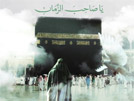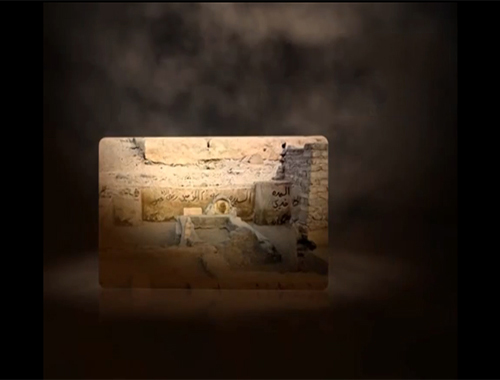Servitude of Allah (S.w.T.) and Comparison with Angels
- Details
- Hits: 2723
Servitude of Allah (S.w.T.) and Comparison with Angels
Amir ul-Mu’minÄ«n (a.s.) says in a sermon of Nahjul Balagha:
Allah (S.w.T.) has made obligatory upon you the pilgrimage (hajj) to His sacred House which is the turning point for the people who go to it as beasts or pigeons go towards spring water. Allah (S.w.T.) the glorified made it a sign of their supplication before His Greatness and their acknowledgement of His Dignity. He selected from among His creation those who on listening to His call responded to it and testified His word. They stood in the position of His Prophets and resembled His angels who surround the Divine Throne securing all the benefits of performing His worship and hastening towards His promised forgiveness. Allah (S.w.T.) the glorified made it (His sacred House) an emblem for Islam and an object of respect for those who turn to it. He made obligatory its pilgrimage and laid down its claim for which He held you responsible to discharge it. Thus, Allah (S.w.T.) the glorified said:
“…And (purely) for Allah, is incumbent upon mankind, the pilgrimage to the House, for those who can afford to journey thither. And whoever denieth, then verily, Allah is Self sufficiently independent of the worlds”
(Surah Ä€li- ‘Imran 3: 97)
Allamah NarÄqi has described the spiritual and material benefits of Hajj in eloquent words in his book Me’rajus Sadat. Some of his comments:
The main purpose for which Allah (S.w.T.) has created man is that he should recognize his Creator, be devoted to Him and remain attached to Him. [This depends upon the purity of his inner self, which in turn depends on his control over his sensual desires and his aversion to evil]. Throughout his life he has to continually remember Allah (S.w.T.) and direct his efforts in thought and action towards dedication to Allah (S.w.T.). At all times his priorities are to be clear; that nothing pertaining to the material world is to have precedence over the pleasure of Allah (S.w.T.). As a means of attaining this objective the Almighty desires to be worshipped. The compassionate Allah (S.w.T.) has ordained that by worshipping Him and supplicating Him man would have fulfilled the very purpose of his creation and his existence. In His wisdom and mercy He has made some acts of worship obligatory so that man is compelled to benefit himself.
Zakat and Khums are compulsory deeds of worship. Acting upon them a person will be obliged to spend from his wealth in the way of Allah (S.w.T.). This practice will gradually develop in him a detachment towards material world. Fasting as an obligatory worship inculcates a spirit of self-control over desires and self-denial of worldly pleasures. Prayers encourage us to give our full attention to Allah (S.w.T.), both with our senses and our bodily movements.
Hajj is such an excellent act of worship that it embraces the significance and virtues of all other forms of worship. Not only does it include spending in the way of Allah (S.w.T.), leaving our homeland, denying ourselves comfort and pleasures; spending time in prayers and supplications and several other rituals like Tawaf, recanting the oath we have taken for Allah (S.w.T.). We also have to perform some ritual like running between Safa and Marwah, which display an extreme form of humility and helplessness and the stoning of satans which we cannot fully comprehend. Some rituals can be understood through reason, but there are some others that defy our intellect and try as we may we cannot fathom the depths of their significance.
However, keeping their benefits aside we must consider them a form of service to Almighty and a fulfillment of one of His commands. Indeed, total submission and true devotion is displayed only through such types of rituals. Because submission implies that we do whatever we have been commanded solely for Allah (S.w.T.)’s pleasure. That is why the Messenger of Allah (S) said regarding Hajj.
“I have heeded your call by performing Hajj by sincere servitude and obedience.”
He (S) did not utter such words regarding any other act of worship. Indeed the act of worship the wisdom of which we cannot fathom is the best form of worship. Those who are surprised at the unusual rituals of Hajj have not understood the secret of devotion and servitude. One of the special characteristic of Hajj is to perform all rituals even without necessarily comprehending the rationale behind them.
Every ritual of Hajj has a significance that relates it to the events of the hereafter. Besides, it is a necessary requirement of Hajj that all the people gather at a place which was frequented by the Angels who brought divine revelation to the Holy Prophet (S). Before the Messenger of Allah (S), the friend of Allah (KhalÄ«lullah) Hazrat IbrahÄ«m (a.s.) stood at this place and it was at that very spot the Angels descended for him. It is such a purified land that from Adam (a.s.) to the seal of the Prophets the greatest messengers of Allah have camped here. It is here that divine revelation and angels have descended through the ages. It is the birth place of the chief of Prophets (S) and the ground oft trodden by him and the other prophets (a.s.). The Almighty Allah has addressed it as “My House” and made it a place of worship for men. He appointed the surroundings of this House as a Sanctuary. He chose the plain of Arafat near His House as a place of forgiveness. In order to maintain the dignity of His House, He prohibited the killing of any living creature or uprooting of vegetation. He bestowed a special status to this place, for people to gather from far off places and humble themselves before the Lord of the House and confess verbally that He is higher and beyond place and time.
No doubt, gathering at such a place increases love and brotherhood. We get a chance to meet righteous believers from around the world thus forming ties of friendship, which results in early acceptance of the invocations of the people. We are also reminded of the struggles and difficulties borne by the Messenger of Allah (S) in the establishment and dissemination of religion. All these factors purify the souls of those present in Hajj and fill them with tenderness. It is a display of the magnificence of Islam and the greatness of the founders of Islam.
Last, the high status of the House of Allah was further enhanced by Him by making it the birth place of Amir ul-Mu’minÄ«n ‘Ali (a.s.), without allegiance to whom, no act of worship is acceptable to Allah (S.w.T.).











